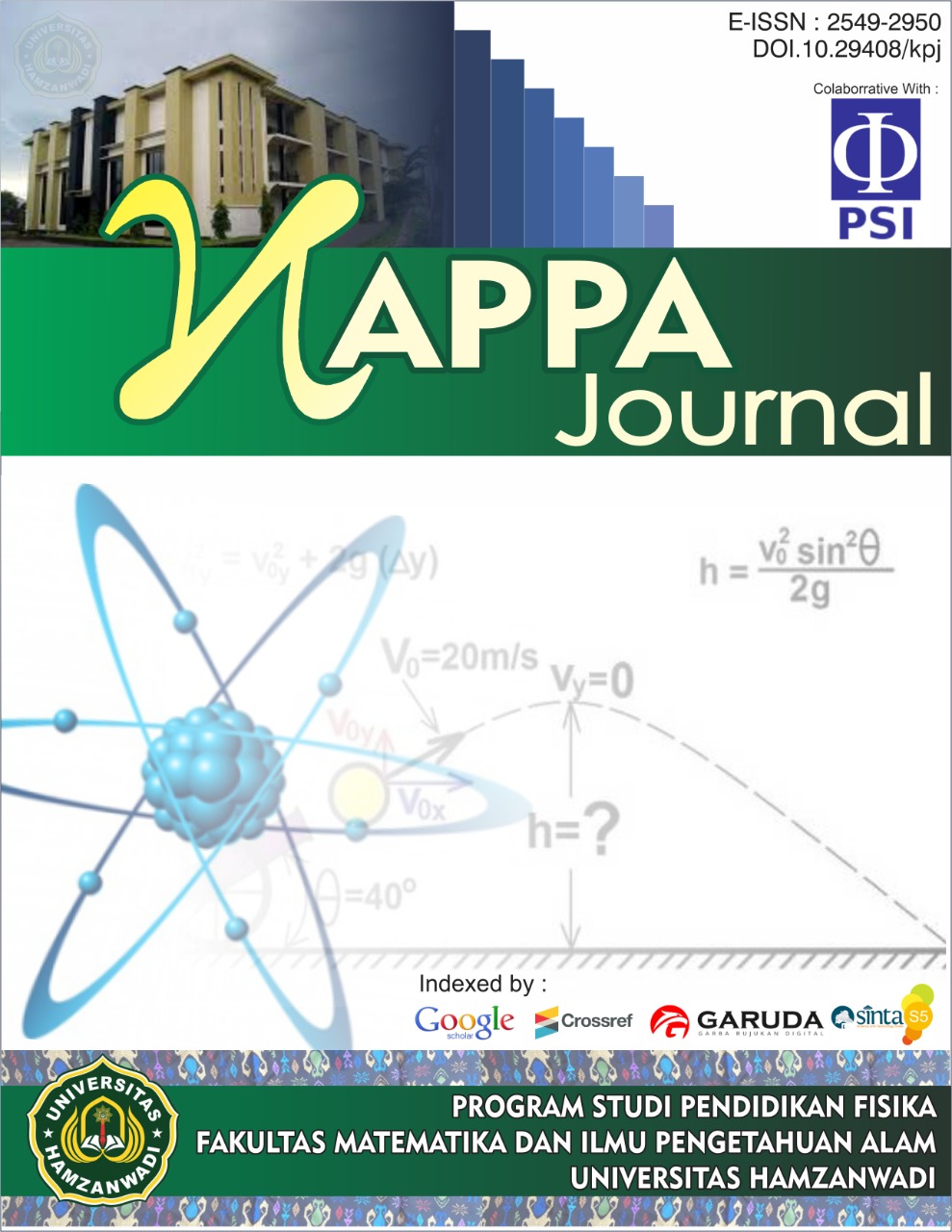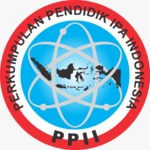Analisis Hasil Belajar Kognitif Siswa Pada Pembelajaran IPA Fisika Kelas X Sekolah Menengah Atas Dengan Pendekatan Konstruktivisme
DOI:
https://doi.org/10.29408/kpj.v8i3.27682Keywords:
Cognitive Learning Outcomes, Physics; Constructivism Approach, Senior High SchoolAbstract
The aim of this research is to analyze students' cognitive learning outcomes in Physics subjects using a constructivist approach in class X of high school. This research uses a descriptive method with a qualitative approach. Data was collected through observation, interviews and documentation. Data analysis techniques involve three stages: data reduction, data presentation, and drawing conclusions. This research involved 32 students as research subjects. The results showed that 6 students got low scores, 15 students got medium scores, and 11 students got high scores. The highest score obtained by students was 100, while the lowest score was 65. The average student cognitive learning outcomes in Physics learning with a constructivist approach was 73,28, which is included in the currently category (55-74 interval). Based on these findings, it is recommended to use media and other innovative models in learning that can better support improving students' cognitive learning outcomes in class X physics learning in high school.
References
AlAfnan, M. A. and Dishari, S. (2024). Esd goals and soft skills competencies through constructivist approaches to teaching: an integrative review. Journal of Education and Learning (EduLearn), 18(3), 708-718. https://doi.org/10.11591/edulearn.v18i3.21408
Aprilia, M. (2023). Pengaruh pendekatan konstrukivisme dengan strategi group investigation terhadap pemahaman konsep matematis siswa smp negeri 99 jakarta. Jurnal Riset Pendidikan Matematika Jakarta, 5(2), 45-54. https://doi.org/10.21009/jrpmj.v5i2.23085
Ardiansyah, A., Mahrun, M., & Purnamansyah, P. (2023). Pengembangan alat peraga fisika dasar berbasis konstruktivisme untuk membangun keterampilan generik sains pada peserta didik sma. Jagomipa Jurnal Pendidikan Matematika Dan Ipa, 3(1), 25-32. https://doi.org/10.53299/jagomipa.v3i1.265
Ardianyah, A. (2023). Development of constructivism-based physics tools to build generic science skills for high school students. Jurnal Pijar Mipa, 18(3), 376-380. https://doi.org/10.29303/jpm.v18i3.4660
Ardianyah, A. (2023). Development of constructivism-based physics tools to build generic science skills for high school students. Jurnal Pijar Mipa, 18(3), 376-380. https://doi.org/10.29303/jpm.v18i3.4660
Ateş, Ö., Ünal, G. Ç., & Kaya, S. (2018). Consistency between constructivist profiles and instructional practices of prospective physics teachers. European Journal of Educational Research, volume-7-2018(volume7-issue2.html), 359-372. https://doi.org/10.12973/eu-jer.7.2.359
Chen, Q., Cheng, X., & Jing, E. (2023). The influence of constructivist learning style on college students' learning of basic subjects. Lecture Notes in Education Psychology and Public Media, 22(1), 327-334. https://doi.org/10.54254/2753-7048/22/20230334
Chen, Q., Cheng, X., & Jing, E. (2023). The influence of constructivist learning style on college students' learning of basic subjects. Lecture Notes in Education Psychology and Public Media, 22(1), 327-334. https://doi.org/10.54254/2753-7048/22/20230334
Demır, M. and Kaya, M. (2022). Analysis of constructivist learning model’s effects on student outcomes: a second order meta-analysis. Kuramsal Eğitimbilim, 15(4), 938-957. https://doi.org/10.30831/akukeg.1122136
Gerhátová, Ž., Perichta, P., & Palcut, M. (2020). Project-based teaching of the topic “energy sources” in physics via integrated e-learning—pedagogical research in the 9th grade at two primary schools in slovakia. Education Sciences, 10(12), 371. https://doi.org/10.3390/educsci10120371
Gu, X. (2023). How do different educational theories apply to group study?. Lecture Notes in Education Psychology and Public Media, 18(1), 27-32. https://doi.org/10.54254/2753-7048/18/20231280
Gumisirizah, N., Muwonge, C. M., & Nzabahimana, J. (2023). Effect of problem-based learning on students’ problem-solving ability to learn physics. Physics Education, 59(1), 015015. https://doi.org/10.1088/1361-6552/ad0577
Hendriks, R. A., Jong, P. d., Admiraal, W., & Reinders, M. E. (2019). Teaching modes and social-epistemological dimensions in medical massive open online courses: lessons for integration in campus education. Medical Teacher, 41(8), 917-926. https://doi.org/10.1080/0142159x.2019.1592140
Imtihani, H., Bakri, F., & Sunaryo, S. (2023). Pengembangan video pembelajaran untuk melatih keterampilan berpikir kritis siswa sma pada materi gelombang bunyi dan cahaya.. https://doi.org/10.21009/03.1102.pf34
Kartika, I., Aroyandini, E., Maulana, S., & Fatimah, S. (2022). Analisis prinsip konstruktivisme dalam pembelajaran fisika berbasis science, technology, engineering, art, and mathematics (steam). Jurnal Pembangunan Pendidikan Fondasi dan Aplikasi, 10(1), 23-33. https://doi.org/10.21831/jppfa.v10i1.46381
Linawati, A. I., Indriyanti, D. R., & Ridlo, S. (2023). Student learning outcomes on ecology and biodiversity with the construcvism approach learning discovery models. Journal of Innovative Science Education, 12(2), 173-179. https://doi.org/10.15294/jise.v12i2.71997
Nurhasanah, F. (2023). Efektivitas penggunaan model pembelajaran kontruktivisme terhadap hasil belajar siswa pada mata pelajaran IPA. https://doi.org/10.31219/osf.io/2hstj
Pacala, F. A. and Obiedo, R. (2023). Did covid-19 reshape constructivism approach? a synthesis paper during the world-wide shift to full distance learning. Ho Chi Minh City Open University Journal of Science - Social Sciences, 13(1), 36-45. https://doi.org/10.46223/hcmcoujs.soci.en.13.1.2682.2023
Rahayu, A. (2022). Pengembangan Modul berbasis 3D Pageflip professional materi pemantulan dan pembiasan cahaya untuk meningkatkan kemandirian belajar siswa. Wapfi (Wahana Pendidikan Fisika), 7(1), 75-82. https://doi.org/10.17509/wapfi.v7i1.45372
Siagian, G., Lufri, L., Andromeda, A., & Mufit, F. (2023). The effectiveness of constructive learning having a vision of science, environment, technology, society for increase results learn ipa high school student. Jurnal IPA &Amp; Pembelajaran IPA, 7(1), 86-96. https://doi.org/10.24815/jipi.v7i1.29796
Tabassum raza, Saima Mehmood, Salma Channa, & Nasim Abdul Karim (2023). A comparative study of constructivist and traditional methods of teaching science to grade v, primary level public school of district korangi, karachi. Voyage Journal of Educational Studies, 3(2), 326-346. https://doi.org/10.58622/vjes.v3i2.60
Ugwuozor, F. O. (2020). Constructivism as pedagogical framework and poetry learning outcomes among nigerian students: an experimental study. Cogent Education, 7(1). https://doi.org/10.1080/2331186x.2020.1818410
Ugwuozor, F. O., Ede, M. O., Abiogu, G. C., Ugwu, J. C., Ncheke, D. C., Nnamani, A. O., … & Obiweluozor, C. (2020). Effect of the constructivist method on junior secondary school students’ achievement in poetry: implications for school counseling in nigeria. Global Journal of Health Science, 12(5), 80. https://doi.org/10.5539/gjhs.v12n5p80
Septiyana, D. N., Syahidi, K., & Mardi, E. S. (2023). Implementasi Model Project Based Learning Untuk Meningkatkan Hasil Belajar Siswa Pada Materi Cahaya Dan Alat Optik. LAMBDA : Jurnal Ilmiah Pendidikan MIPA Dan Aplikasinya, 3(2), 87–95. https://doi.org/10.58218/lambda.v3i2.649
Yunita, N., Zahara, L., & Syahidi, K. (2020). Pengaruh Model Problem Based Learning (PBL) Melalui Lesson Study Terhadap Kemampuan Berpikir Kritis Siswa. Kappa Journal, 4(2), 233–239. https://doi.org/10.29408/kpj.v4i2.2756
Downloads
Published
Issue
Section
License
Copyright (c) 2024 Kappa Journal

This work is licensed under a Creative Commons Attribution-ShareAlike 4.0 International License.
Semua tulisan pada jurnal ini menjadi tanggungjawab penuh penulis. Jurnal Kappa memberikan akses terbuka terhadap siapapun agar informasi dan temuan pada artikel tersebut bermanfaat bagi semua orang. Jurnal Kappa dapat diakses dan diunduh secara gratis, tanpa dipungut biaya, sesuai dengan lisensi creative commons yang digunakan








